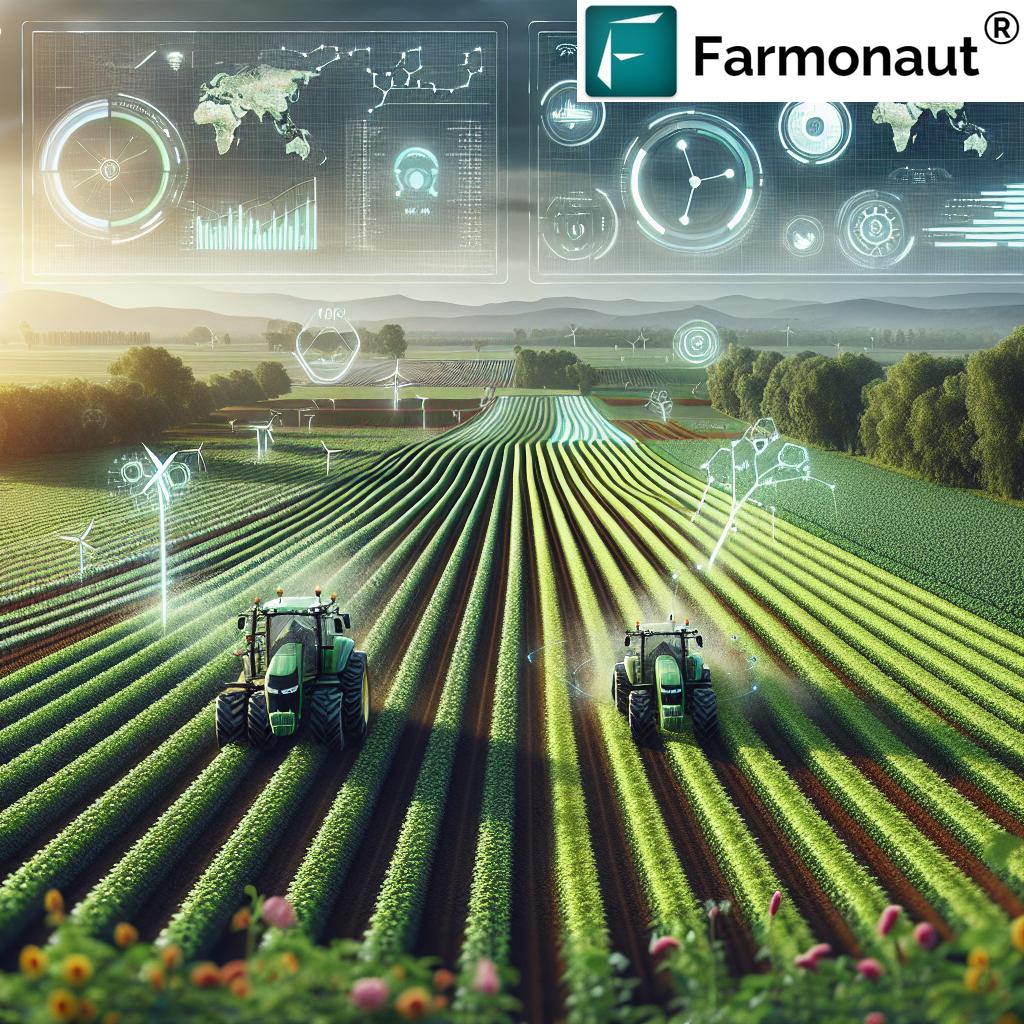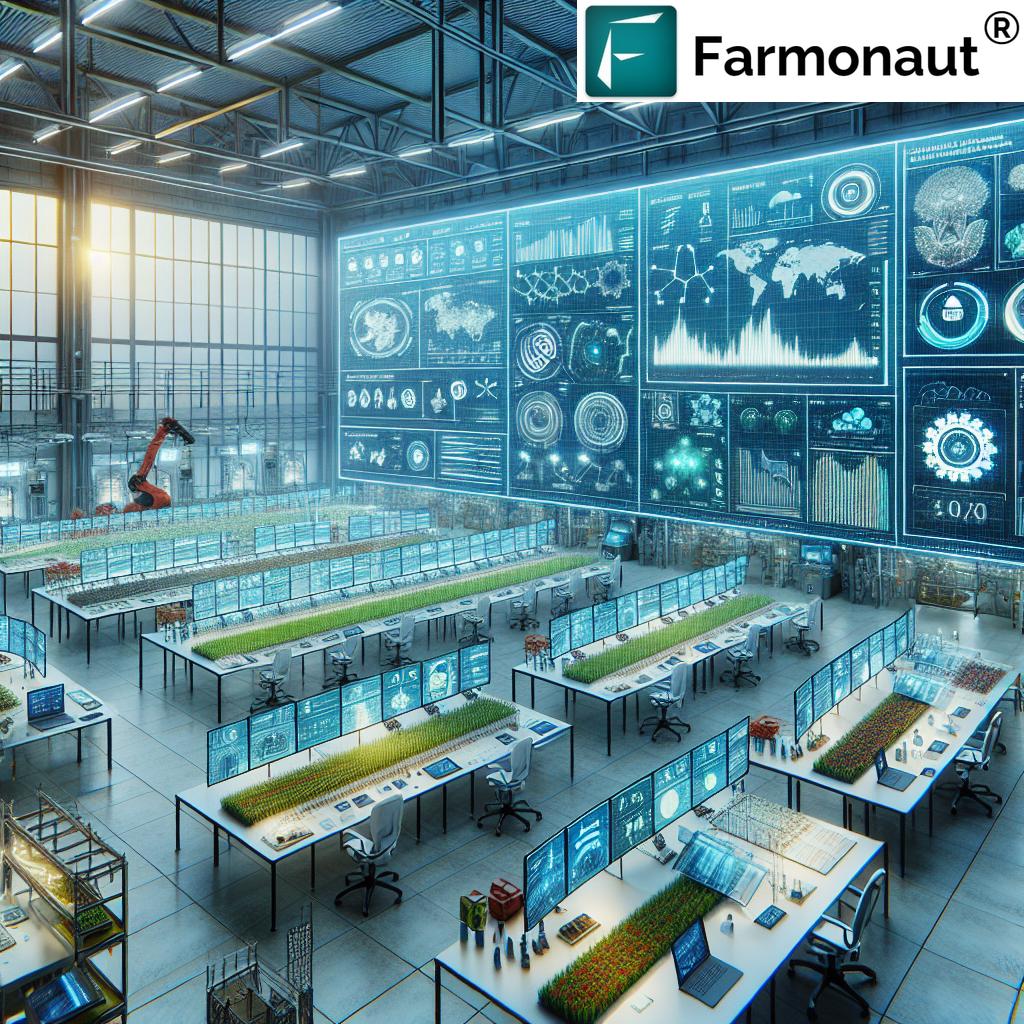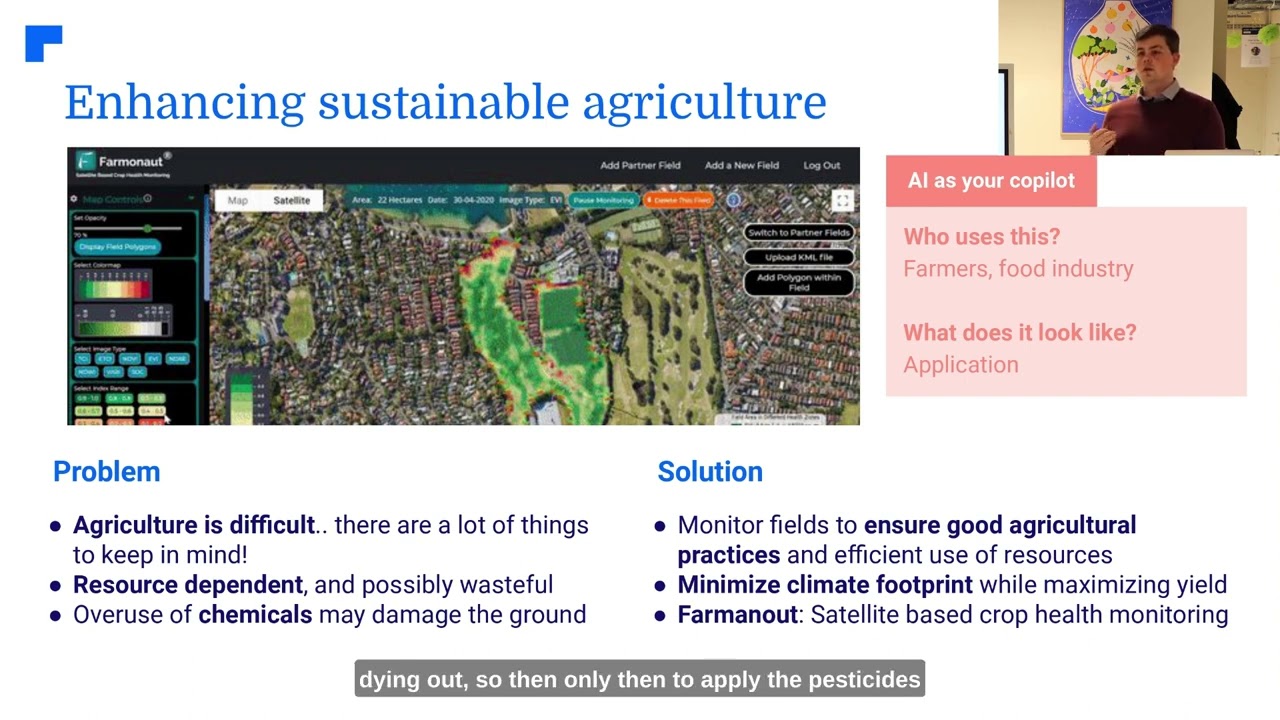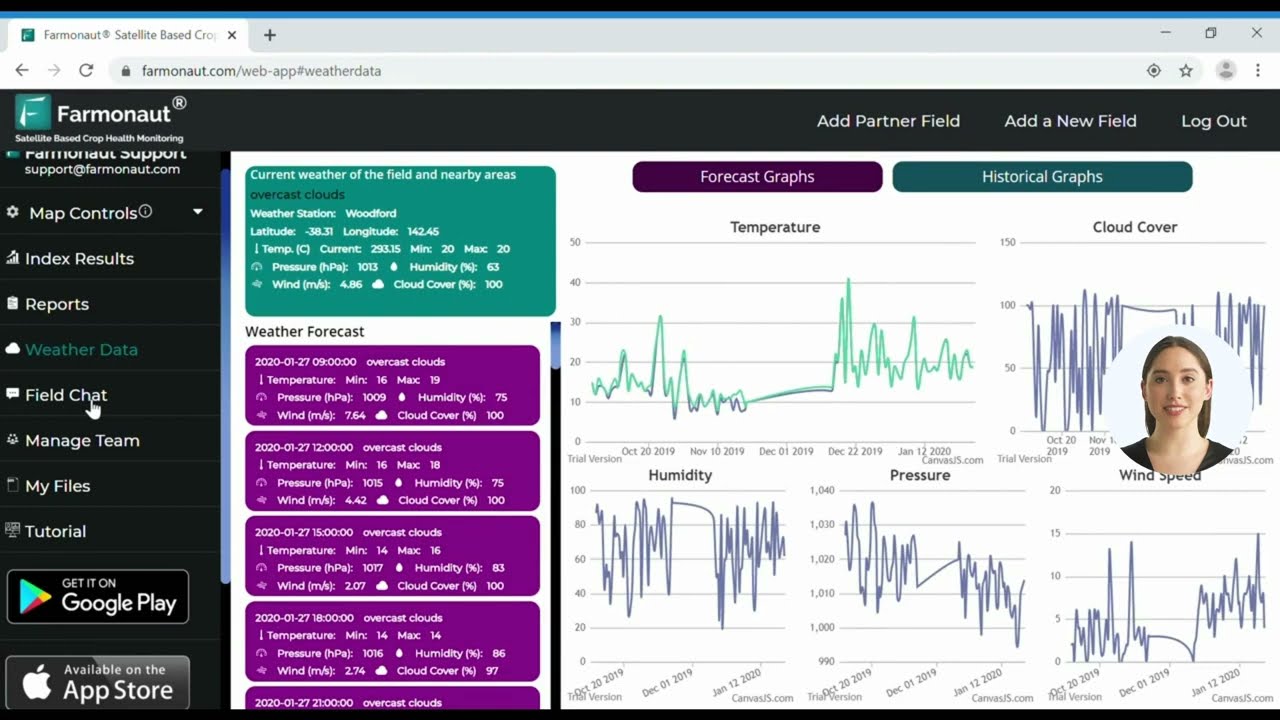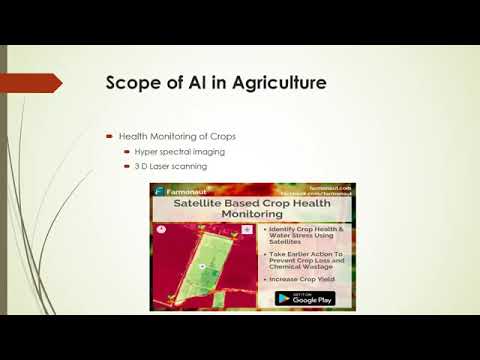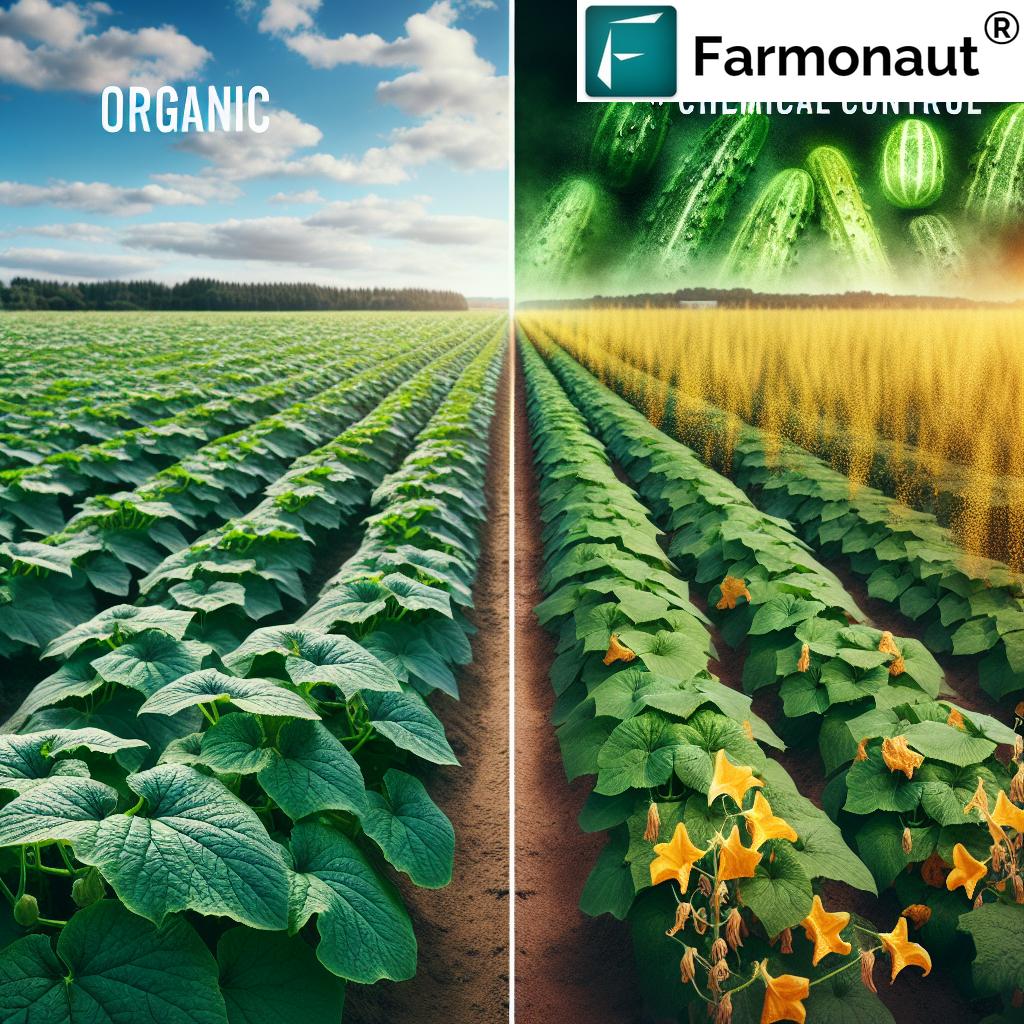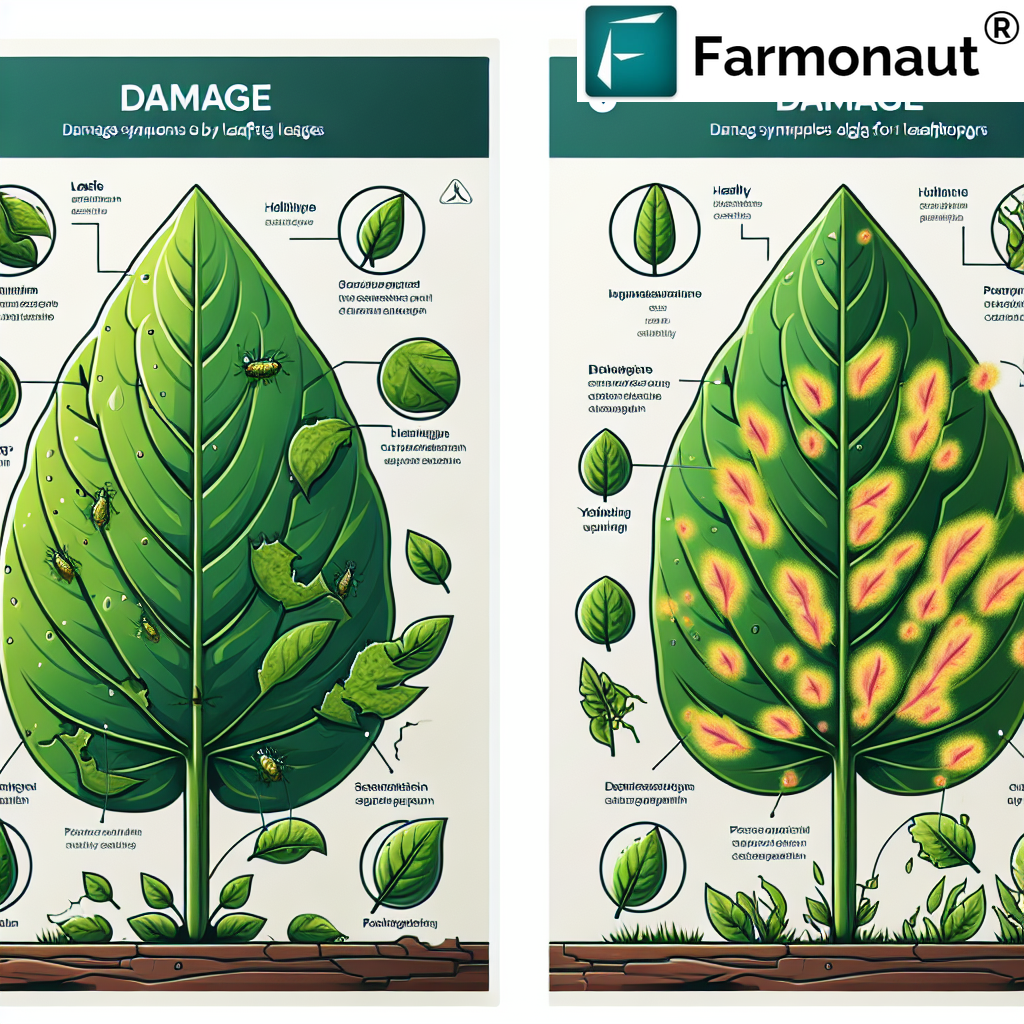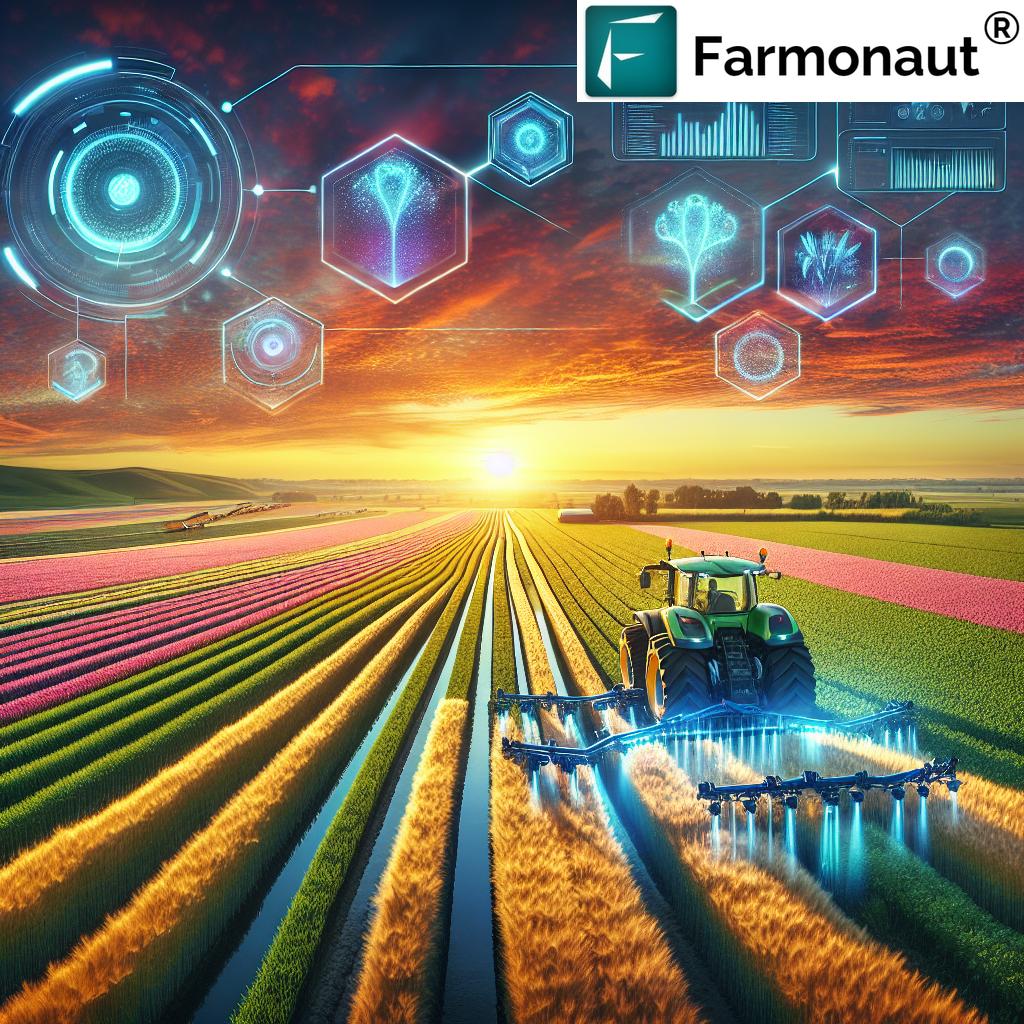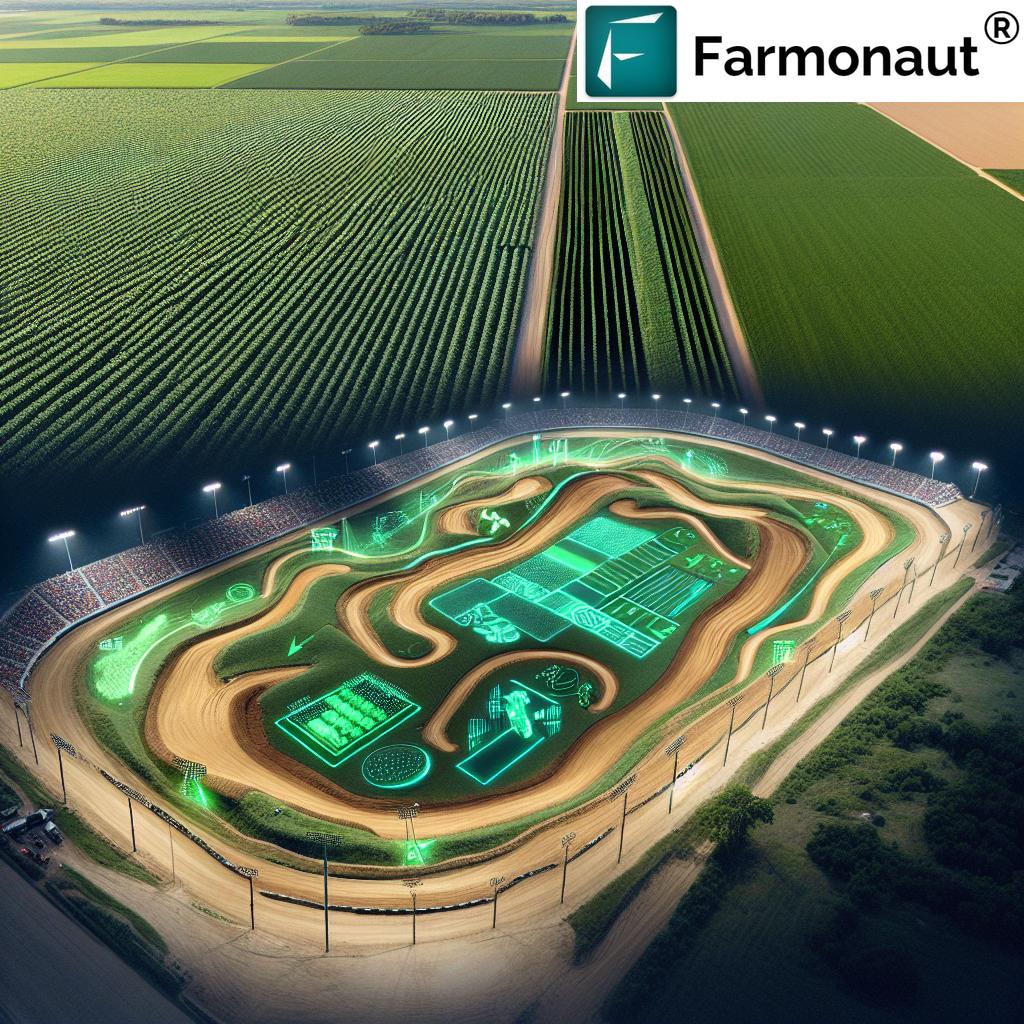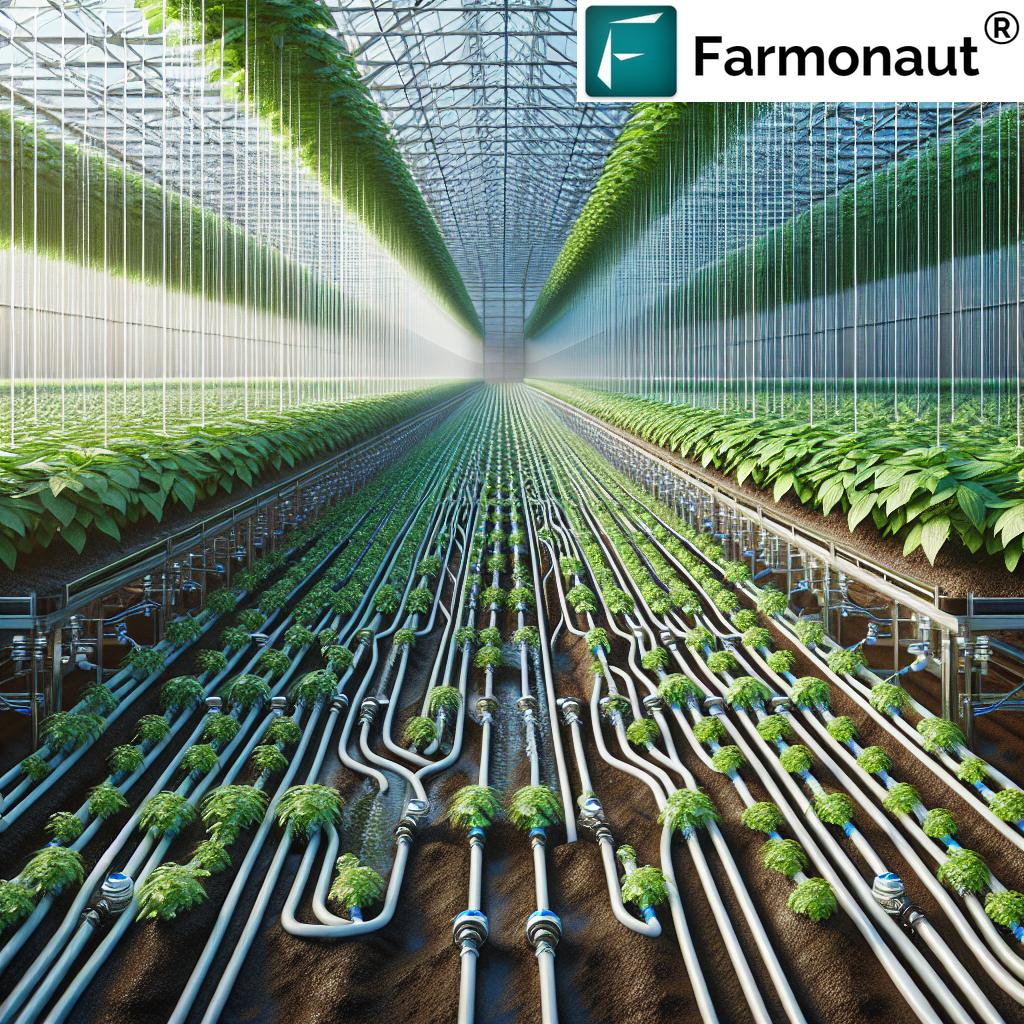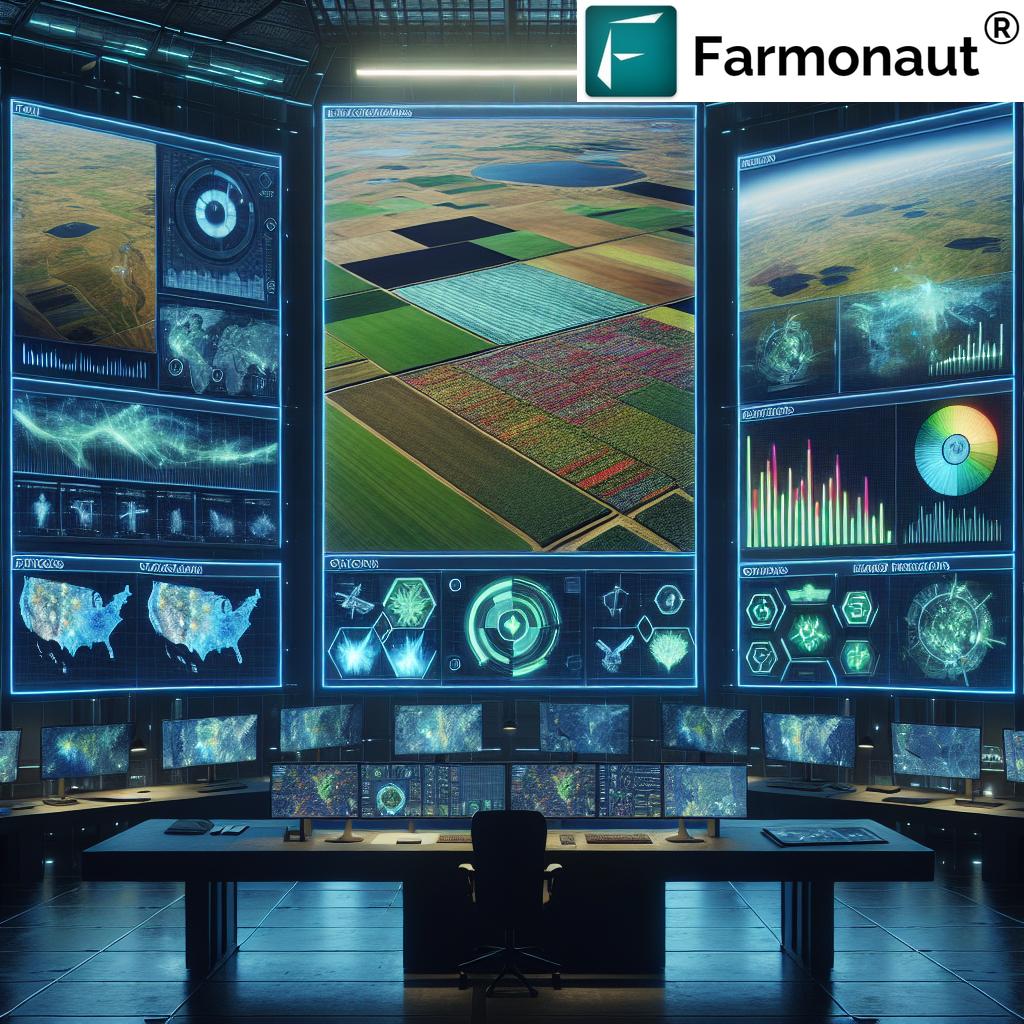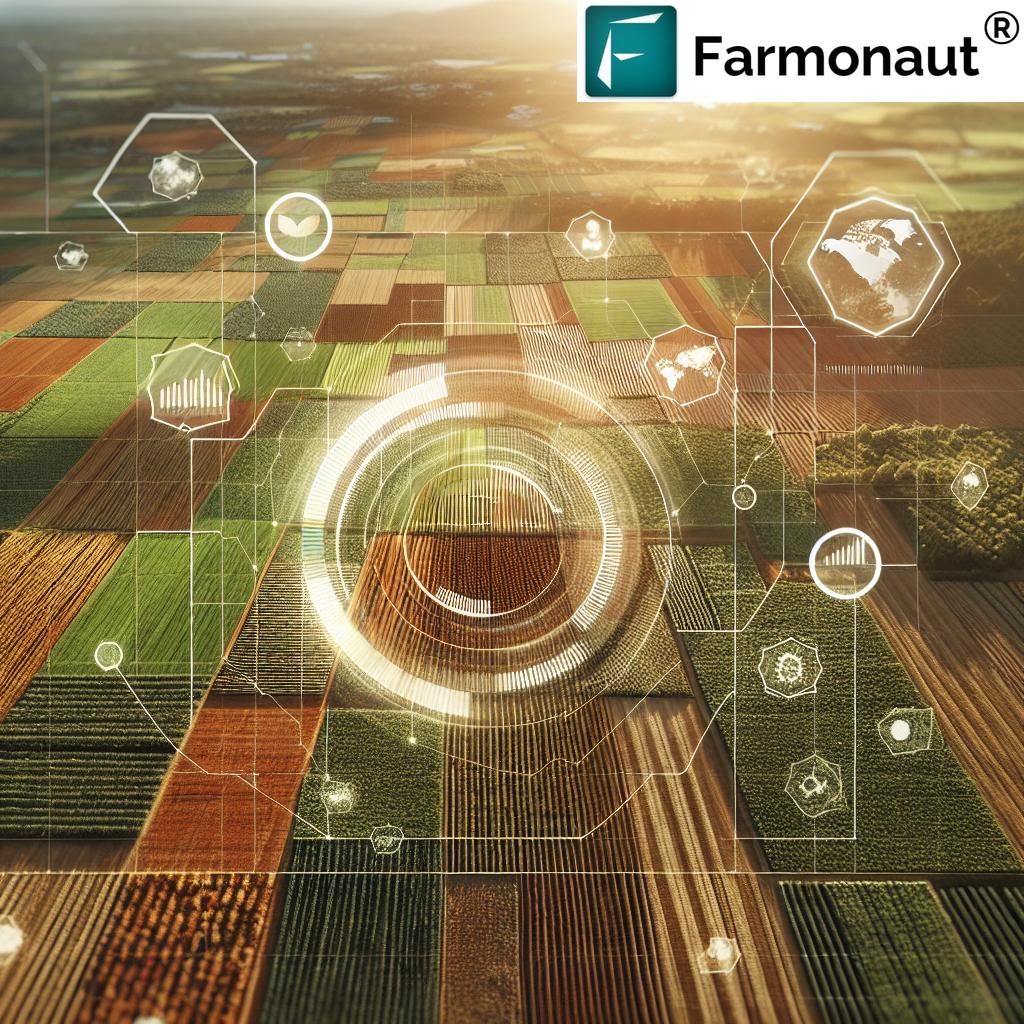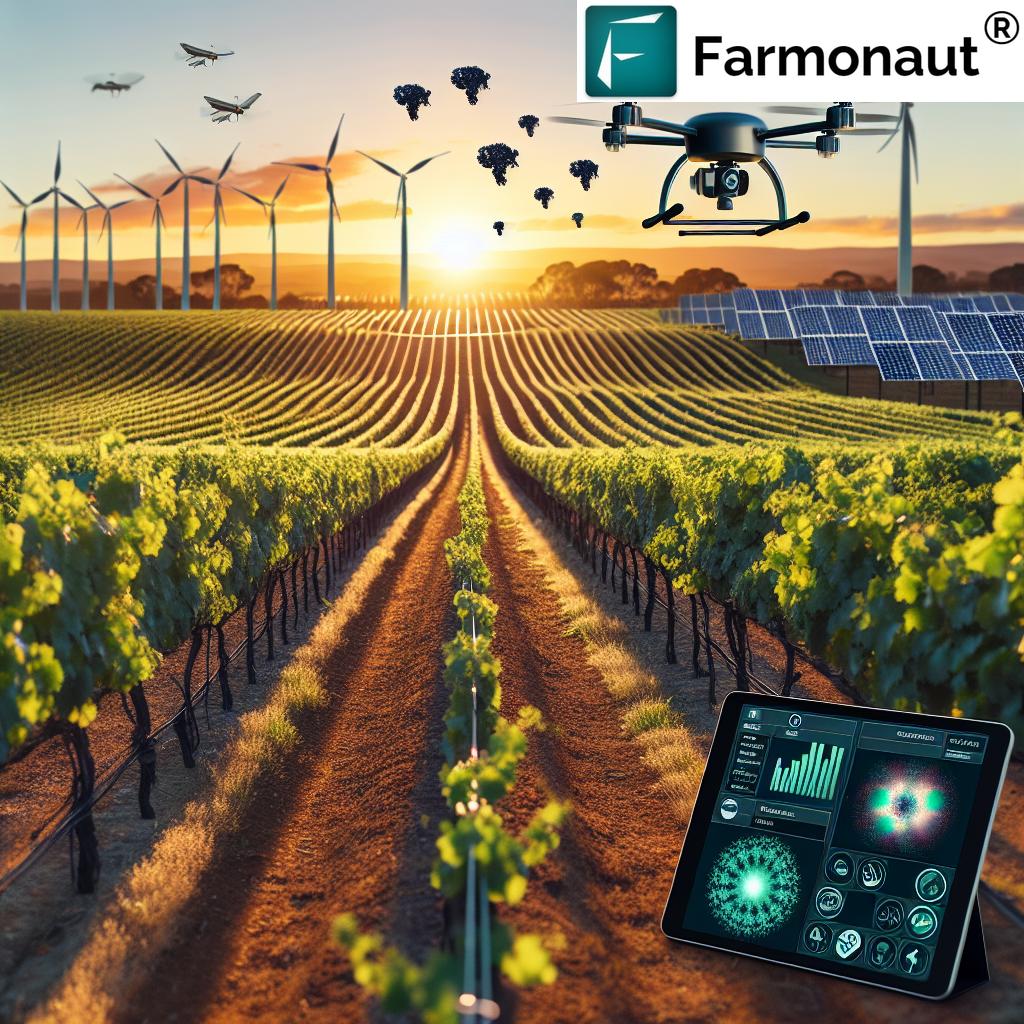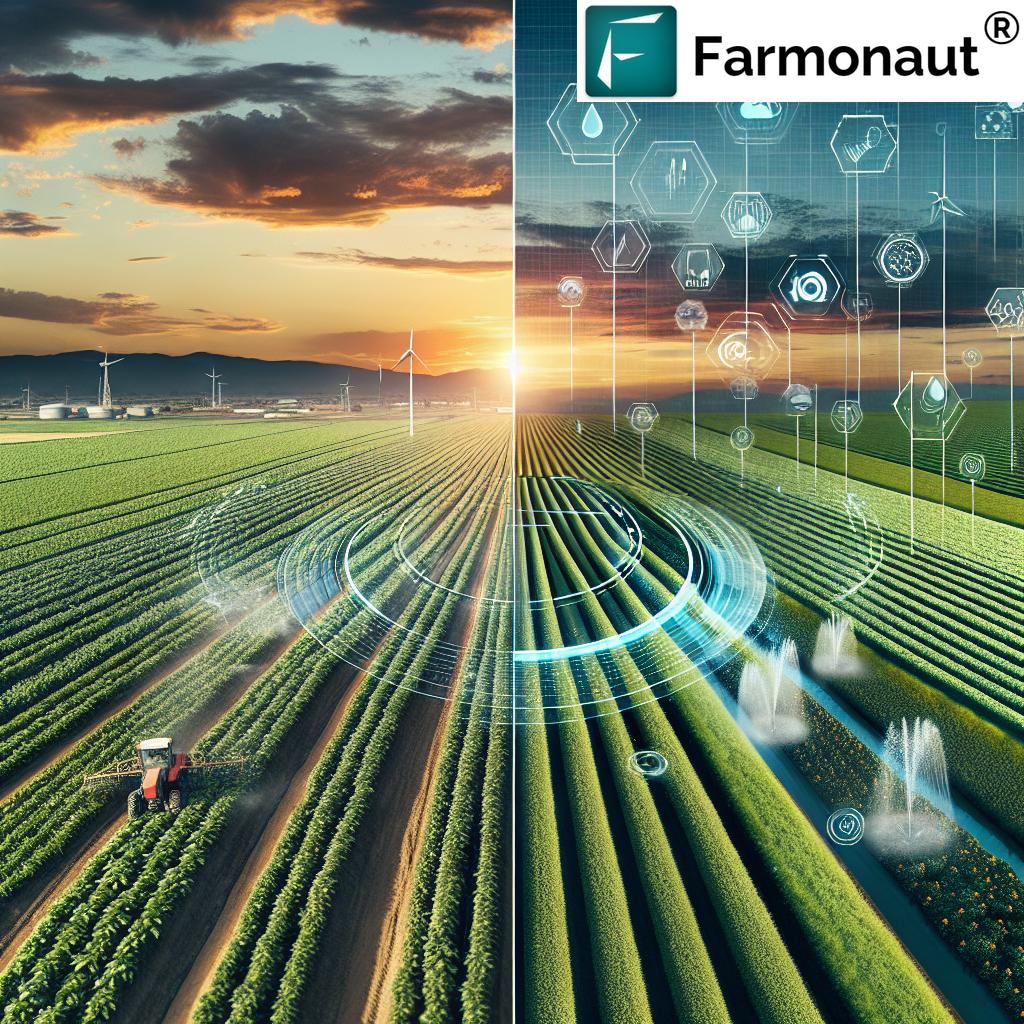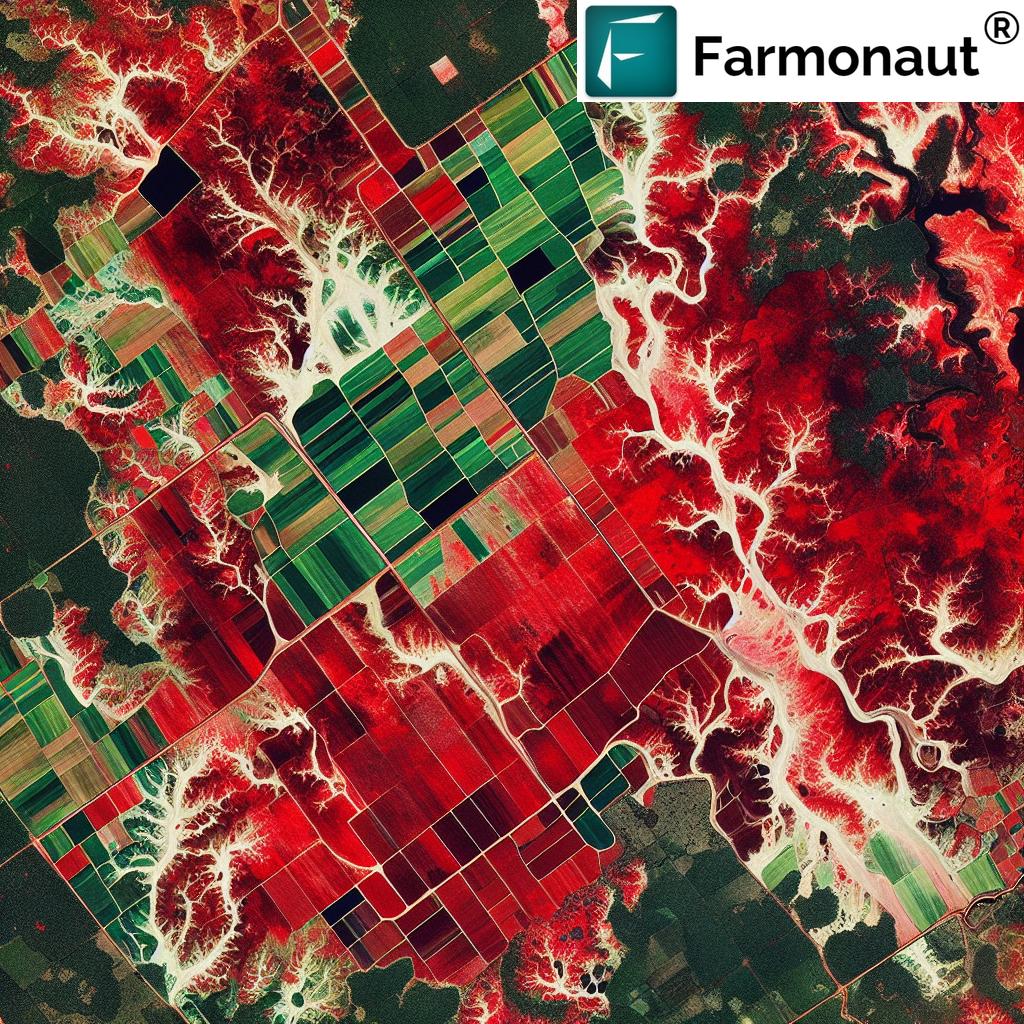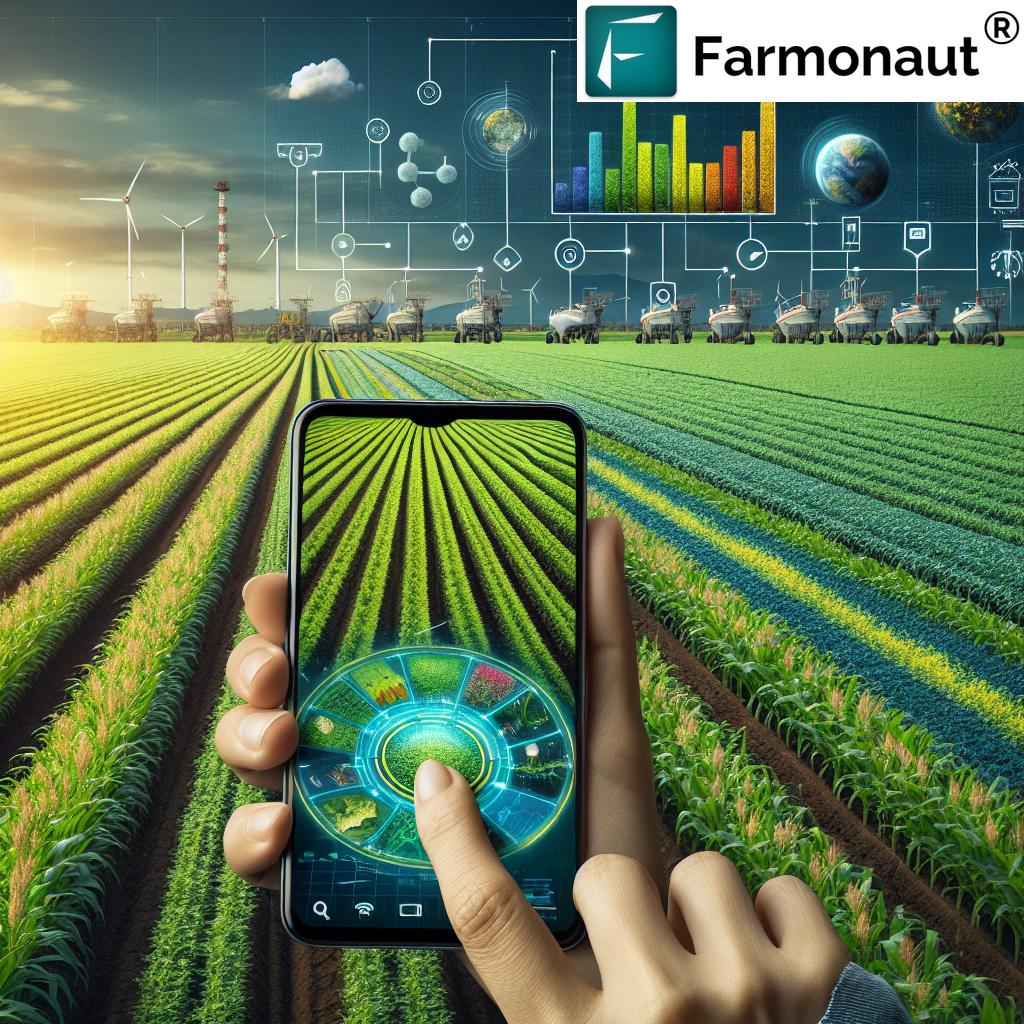Smart Farm Technology: 7 Shocking Agri Innovations
In today’s rapidly evolving agricultural landscape, smart farming is transforming how we cultivate, monitor, and manage our resources. The world’s population continues to soar, and so does the demand for efficient, productive, and sustainable food systems. Smart farm technology leverages AI, IoT in farming, data analytics, and robotics to deliver actionable insights, maximize yields, reduce environmental impact, and empower farmers to make fast, informed decisions.
At Farmonaut, we recognize that the integration of advanced technologies into farm management radically enhances traditional agricultural practices. As a pioneering provider of satellite-driven farm automation technologies, we deliver powerful precision tools and platforms that help stakeholders worldwide tap into the benefits of digital farming while confronting the biggest challenges facing the sector.
Key Components of Smart Farming and Precision Agriculture
Smart farming and precision agriculture are more than buzzwords; they represent a paradigm shift toward data-enabled, sustainable agriculture practices. Our collective efforts focus on integrating artificial intelligence in agriculture, IoT devices, drone technology in farming, and automated machinery into everyday farm operations.
- Precision Agriculture: Harnessing data-driven insights for optimized resource management and decision-making.
- Automation & Robotics: Utilizing autonomous machinery and robotics to perform labor-intensive tasks efficiently.
- IoT Innovations: Leveraging IoT in farming for real-time field and crop monitoring systems.
- AI & Machine Learning: Applying artificial intelligence to analyze agricultural data and optimize farming outputs.
- Drones & Satellites: Deploying aerial imagery for precision and problem detection.
- Livestock Monitoring: Using smart devices to improve animal health and welfare.
Let’s dive deeper into seven of the most game-changing smart farm innovations that are transforming agriculture globally.
Smart Farm Technology: 7 Shocking Agri Innovations
Each of these agri innovations merges technology, data, and practical farming know-how to optimize resources, increase productivity, and champion sustainability.
- Precision Agriculture Strategies
- Automated Farm Machinery and Robotics
- IoT and Sensor Technology
- Artificial Intelligence & Machine Learning
- Drone Technology & Satellite Imaging
- Livestock Monitoring Devices
- Blockchain-Based Traceability
1. Precision Agriculture Strategies
Precision agriculture is the cornerstone of modern farm management. By analyzing field variability in soil, weather, and crops, farmers can tailor planting, irrigation, and harvesting to the needs of specific zones rather than applying one-size-fits-all treatments.
We utilize satellite-based crop monitoring systems and agricultural data analytics to interpret soil moisture, vegetation indices, and environmental conditions. Real-time data enables informed decisions, from when to sow to how much water to apply, reducing waste and achieving optimal crop yields.
- Minimizes fertilizer and pesticide use by applying only where needed
- Boosts crop quality and consistency
- Enables early detection of disease, pests, or nutrient deficiencies
At Farmonaut, our satellite imagery platform democratizes precision agriculture by making high-resolution field data accessible and actionable via mobile, web, and APIs.
Looking for actionable insights on crop health, planting, and soil conditions? Get personalized, satellite-driven advisory with Farmonaut’s Crop Plantation & Forest Advisory, empowering smarter farm management from your mobile or browser.
2. Automated Farm Machinery and Robotics
The era of autonomous equipment is here. Automated tractors, robotic harvesters, and AI-powered weeders perform labor-intensive tasks—such as planting, weeding, or harvesting—with unmatched precision. For example, some companies, like those employing FarmWise-like robots, use computer vision to remove weeds without using chemicals, directly lowering environmental impact and input costs.
- Reduces reliance on manual labor
- Enables 24/7 operations and consistency
- Delivers higher precision in planting, spraying, and harvesting tasks
Automated farm machinery is integral for tackling labor shortages and scaling farm operations, further reinforced by real-time data from sensors and management platforms like Farmonaut’s Large Scale Farm Management App.
Optimize all your farm vehicles and machinery effortlessly. Use Farmonaut’s Fleet Management solution to monitor routes, utilization, and costs for your tractors, harvesters, and field equipment—all from a single dashboard.
3. IoT and Sensor Technology in Farming
The Internet of Things in farming unlocks enormous potential for resource conservation and real-time monitoring. Farmers deploy IoT sensors across their fields to track soil moisture, temperature, humidity, and nutrient levels.
This constant data feed empowers farmers to adjust irrigation systems and fertilizer applications swiftly, ensuring optimal conditions for plant growth and minimizing waste.
- Efficiently manages water usage by irrigating only where and when necessary
- Enables prompt, data-driven responses to environmental changes
- Improves crop monitoring and risk management
Integrated with platforms like Farmonaut’s crop monitoring systems, these IoT solutions inform actionable recommendations directly on your app or computer—helping you move toward a more sustainable and data-centric future.
4. Artificial Intelligence and Machine Learning Applications
AI and machine learning represent the rocket fuel behind smart farming. With the rise of AI in agriculture, vast volumes of environmental and crop data are processed to inform:
- Yield prediction and forecasting
- Early detection of disease and pest outbreaks
- Personalized management plans and planting schedules
Farmonaut’s Jeevn AI Advisory System delivers this power directly to users. It combines satellite analytics, live weather, and expert agronomy into easy, actionable advice for smarter farm management and record-breaking productivity.
Our AI solutions also underpin vital services like carbon footprint tracking—helping farms monitor and minimize their environmental impact.
5. Drone Technology and Satellite Imaging
Drones and satellite-based crop monitoring systems are revolutionizing field assessment. They offer a bird’s-eye view for:
- Aerial surveillance to detect issues like pest infestations or nutrient deficiencies
- Mapping field variability and flood/drought patterns
- Targeted interventions, such as precise spraying or reseeding
Satellites, such as those powering Farmonaut’s crop monitoring solutions, provide broad, high-frequency data ideal for large-scale farming operations and government monitoring programs.
UAVs (drones) enable faster, localized responses—helpful for plots where granular intervention is needed.
6. Livestock Monitoring Devices
Wearable IoT sensors are now used to track animal health, behavior, and location. By analyzing data from collars or implanted chips, farmers can spot early signs of illness or stress, intervene swiftly, and optimize feeding regimes. This translates to:
- Improved animal welfare
- Reduced veterinary costs through early disease detection
- Better milk, meat, or wool productivity
Livestock monitoring is especially vital in large-scale production systems and is supported by platforms providing satellite and on-ground integration.
7. Blockchain-Based Traceability Solutions
In a world of growing food safety and quality concerns, blockchain technology ensures full traceability for agricultural products—from farm to fork. Every stage in the supply chain is transparently and securely documented, leveraging tamper-proof digital ledgers.
- Tackles fraud and counterfeit goods in food supply chains
- Builds consumer trust through verifiable product origin
- Streamlines organic and fair-trade certifications
Farmonaut’s blockchain solutions drive this innovation, offering seamless product traceability for agriculture and the food sector. This increases market access and bolsters brand reputation for producers and processors alike.
Need fast, verified crop loan or insurance claim approvals? Use Farmonaut’s Crop Loan & Insurance Verification for reliable, satellite-based farm verification—reducing fraud and enhancing access to agricultural finance.
Comparative Summary Table of Smart Farming Innovations
| Innovation Name | Technology Used (AI, IoT, etc.) | Main Benefit | Estimated Yield Improvement (%) | Estimated Resource Savings (%) | Sustainability Impact |
|---|---|---|---|---|---|
| Precision Agriculture | GIS, Satellite Data, Data Analytics, AI | Optimized inputs, targeted management | 15-30% | 10-25% | Low inputs, reduced wastage |
| Automated Machinery & Robotics | Robotics, AI, Computer Vision | Increased efficiency, labor savings | 10-20% | 15-30% | Reduced chemical and resource use |
| IoT & Sensor Technology | Smart Sensors, IoT Networks | Real-time monitoring, water control | 8-18% | 20-35% | Water and energy conservation |
| AI & Machine Learning | AI, Machine Learning, Cloud Analytics | Predictive insights, rapid decisions | 12-25% | 10-20% | Lower losses, improved outcomes |
| Drone & Satellite Imaging | Aerial UAVs, Satellite Sensors | Field mapping, early detection | 10-22% | 8-15% | Less wastage, precise interventions |
| Livestock Monitoring Devices | IoT, Wearable Devices, Data Analytics | Better health, timely care | 7-14% | 5-12% | Humane, lower emissions |
| Blockchain Traceability | Blockchain, IoT, QR Trace | Supply transparency, less fraud | 5-10% | N/A | Supply chain sustainability |
Farmonaut’s Role in the Future of Smart Farming
The digital transformation of agriculture is spearheaded by solutions that bridge satellite data, AI, machine learning, and complete resource management. Farmonaut integrates all these, making precision farming not only powerful but affordable and accessible for all.
- Satellite-Based Crop Health Monitoring: Receive near real-time updates on NDVI, soil moisture, and vegetation health—directly on your device.
- AI-based Jeevn Advisory: Actionable insights and weather forecasts, optimized to your crop and region.
- Blockchain-Based Product Traceability: Guarantee food safety and transparency with immutable, digital supply chain records. Learn more here.
- Carbon Footprinting: Monitor emissions and build a greener business. See how you can track your environmental impact.
- Fleet and Resource Management: Reduce fuel, labor, and time costs with robust fleet tracking tools.
- Crop Loan & Insurance Verification: Reliable satellite evidence speeds up financing processes. Explore here.
We make these technologies available worldwide through easy-to-use Android, iOS, and Web Apps and robust APIs for developers (see developer docs).
Key Benefits of Smart Farming and Precision Agriculture
- Increased Efficiency: Automate repetitive and labor-intensive tasks, lowering operational costs.
- Enhanced Productivity: Agricultural data analytics and real-time insights drive better crop and livestock outcomes.
- Resource Conservation: Optimize use of water, fertilizers, and inputs for environmental sustainability.
- Improved Sustainability: Employ techniques like agrivoltaics and carbon footprint tracking to safeguard our planet for generations to come.
- Higher Quality Produce: Targeted management ensures healthier, more consistent food outputs.
Challenges and Considerations in Smart Farming
While innovations in smart farming bring transformative potential, we must address several persistent challenges:
- High Initial Costs: Purchasing and deploying advanced technologies like drones, IoT sensors, and robotics remains a barrier, especially for smallholder farmers.
- Data Management Complexity: Handling, storing, and analyzing large-scale agricultural data requires robust systems and ongoing support.
- Technical Expertise: Farmers need training to interpret insights and operate advanced systems—and we must prioritize ongoing education and technical support.
- Data Privacy and Security: Ensuring the privacy and integrity of farm and food supply data is essential as we digitize more processes.
The Future Outlook of Agri-Tech and Smart Farming
Looking ahead, global initiatives and governmental strategies underscore a mounting commitment to digital agriculture and sustainability. For example, China’s five-year smart farming plan marks a major push to digitize agriculture and ensure national food security. Elsewhere, India leverages satellite data to support millions of farmers.
As technologies advance, our shared goals are clear: increase yields, cut waste, and champion sustainability while making precision agriculture accessible to farms of every scale. Platforms like Farmonaut are democratizing agricultural innovation worldwide, enabling us all to manage risk, operate more efficiently, and feed a growing planet—responsibly.
Frequently Asked Questions (FAQ) about Smart Farm Technology
1. What is smart farming?
Smart farming refers to the integration of advanced digital technologies—like AI, IoT, drones, robotics, and data analytics—into agricultural management. It enables farmers to make data-driven decisions that improve productivity, optimize resources, and support sustainable agriculture practices.
2. How does precision agriculture differ from traditional farming?
Precision agriculture uses real-time and historical data to analyze field variability and tailor treatments for specific zones, rather than applying uniform approaches as in traditional farming. This leads to optimized efficiency and higher-quality outputs.
3. What are the key benefits of IoT in farming?
IoT in farming provides continuous monitoring of soil, weather, and crop health. By alerting farmers to changes instantly, it enables more efficient irrigation, fertilization, and pest management, saving water and inputs.
4. How does Farmonaut’s platform help farmers?
Farmonaut provides satellite-based crop monitoring, AI-driven advisories, and blockchain-based traceability. We empower farmers with actionable insights for irrigation, fertilizer, and pest controls, helping them boost yields, conserve resources, and improve sustainability.
5. Are Farmonaut’s solutions available via mobile apps?
Yes! Farmonaut offers robust platforms on web, Android, and iOS apps for convenient, powerful precision farming anytime, anywhere.
6. What is blockchain traceability and why does it matter for agriculture?
Blockchain-based traceability tracks food and raw materials through every production stage, preventing fraud and ensuring quality, safety, and trust for consumers and businesses.
7. Is smart farming suitable for smallholder farmers?
Absolutely! With satellite imagery and affordable analytics platforms, even small-scale farmers can now access the powerful benefits of precision agriculture. Farmonaut’s mission is to democratize this technology for all.
Try Farmonaut Subscription for Smart Farm Management
Get Started with Farmonaut’s Smart Farming Solutions
Ready to transform your farm with AI-powered analytics, IoT monitoring, and satellite-based precision agriculture? Download our app or visit our website today:


